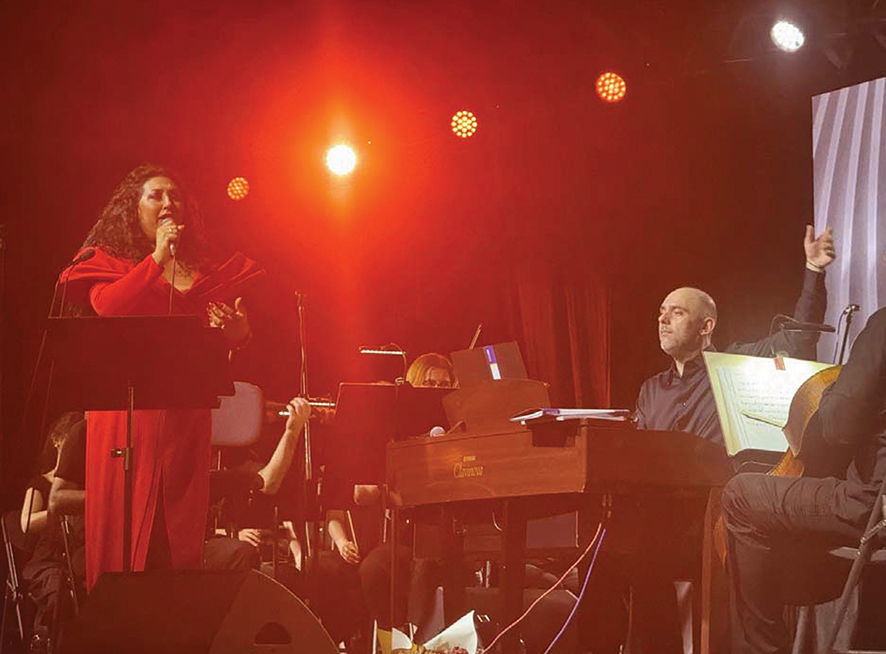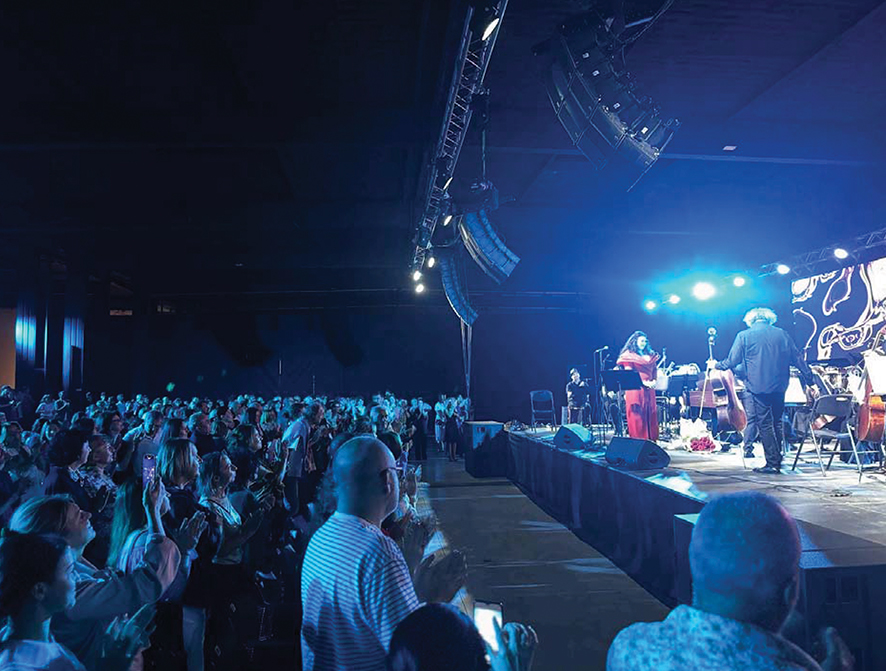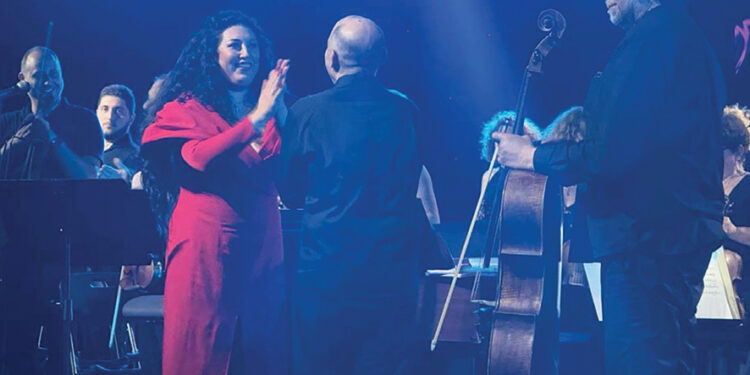When Anita Rachvelishvili walks on stage, something ancestral enters the room. Her presence—dignified, unyielding, unapologetically vocal both musically and politically—reconfigures the atmosphere. On June 27, she took the stage of Factory Tbilisi for a major public concert alongside the Georgian Philharmonic Orchestra, conducted by Nikoloz Rachveli. For a singer who has made rare large-scale appearances in her home country in recent years, it was more than a musical event: it was a statement.
The venue, however—gleaming, ambitious, and profoundly ill-suited to classical performance—resisted her every note. A former industrial site reimagined as a cultural hub, Factory Tbilisi offered luxury visuals, polished production, and private seating. What it lacked was the one element that music cannot do without: resonance.
This was the central paradox of the evening. A singer whose voice has shaken the walls of the Met and La Scala, whose every phrase carries the weight of operatic history, now had to project herself through a PA system better suited to TED Talks or fashion week. The result: a concert of symbolic power and acoustic tragedy.

Though Rachvelishvili has performed in Tbilisi more recently—most notably in a more intimate setting last year—this concert marked a significant return to the public stage. It unfolded not within the state-supported institutions that long kept her at arm’s length, but in a new, privately developed venue. The subtext was clear to those who follow Georgian cultural politics: this was a performance on her terms.
The evening began with the Carmen Suite, a logical and emotional anchor given Rachvelishvili’s definitive performance history in the role. But from the first downbeat, things fell apart. The Georgian Philharmonic Orchestra, led with energy and intention by Rachveli, was sonically dismantled by the space. Low-end frequencies cracked, the subwoofer buzzed, and detail vanished into the hangar’s indifferent air. It was not music, but its broken projection.
What should have felt like homage instead resembled collapse. The factory swallowed the orchestra’s tone and returned it in a degraded form. Listeners were forced to imagine the performance through interference, as if recalling music heard once long ago.
It is no coincidence that this happened with Carmen, an opera of defiance, freedom, and doomed desire. What better metaphor for a voice striving to remain sovereign inside a system designed for erasure?
Then came Anita.
No distortion could erase the force of her presence. Her voice cut through the technological filter with brute physical will—although one could feel the strain of singing through the system, rather than into a hall. Her Dalida was incandescent. Her English-language jazz and blues pieces radiated expressive generosity, even as the amplification robbed them of intimacy. Her renditions of Georgian folk songs were electrifying not despite the context, but because of it: they brought history into an inhospitable present.
The program, by design, was eclectic: a cross-genre journey meant to lift spirits, reach across taste divides, and reassert joy in a time of fatigue. It achieved those goals. And yet, artistically, it felt stretched. The lack of narrative arc, the tonal zigzag between jazz, chanson, opera, and folk, made for a sequence of moments rather than a unified musical structure. Still, each moment stood: earned, embodied, and delivered with the technical command and emotional immediacy that define Rachvelishvili’s art.
But again, the sound. The acoustics turned nuance into generalization. Everything was loud—the complex dynamics of her phrasing flattened into uniformity. This was not reinforcement; it was replacement. One heard her as if through an expensive screen: luminous, but distant.
The evening became a live illustration of Walter Benjamin’s warnings about art in the age of technical reproduction. In interviews before the concert, Rachvelishvili herself invoked The Work of Art in the Age of Mechanical Reproduction, pointing to the ways in which opera’s aura—its ritual, its presence, its unrepeatable physicality—is being eroded by global broadcast culture.
She spoke about the decline of in-person opera attendance, the loss of shared experience, and the rise of institutions that no longer want stars because they are costly, unpredictable, politically vocal. This concert, ironically, confirmed her concerns: even at home, even live, even now, her art was forced to pass through a system that dulled its most precious qualities. She was live—but she was mediated. The aura had to fight for its life.
And yet, it did.

Factory Tbilisi, for all its branding, is not a concert hall. It is a symbol of a broader misalignment in Georgian cultural planning: the substitution of appearance for substance, of investment for infrastructure. Its ambitions are real—and commendable. But its current form treats music as content to be broadcast, not sound to be lived in.
In this sense, the concert was not just about Anita Rachvelishvili. It was about the need for acoustic space in Georgia—not metaphorically, but physically. A country that produces world-class musicians cannot sustain them without stages where their art can breathe.
Rachvelishvili has plans: an academy, a pedagogical ecosystem, a center of excellence modelled on Milan’s La Scala, where Georgian musicians and technicians can train together. It is an ambitious vision. But it also contains the lesson of the evening: music cannot survive without spaces that understand the body, the voice, the air.
If this concert proved anything, it is that presence matters. Anita Rachvelishvili did not need a pristine venue to make her voice heard. She sang through the noise. Through the speakers. Through the hangar. Through the years of absence and silence and official disregard.
But presence without resonance cannot endure forever.
The audience knew it. They stood. They wept. They cheered. But they also left knowing that this performance—like so many things in Georgia today—was a miracle made despite the system, not because of it.
Rachvelishvili’s voice will return. She will teach. She will build. But if this country is to retain its greatest cultural figures, it must offer them something more than symbolism. It must give them space. Literal space. Resonant space. Space worthy of the sound it claims to celebrate.
Review by Ivan Nechaev














